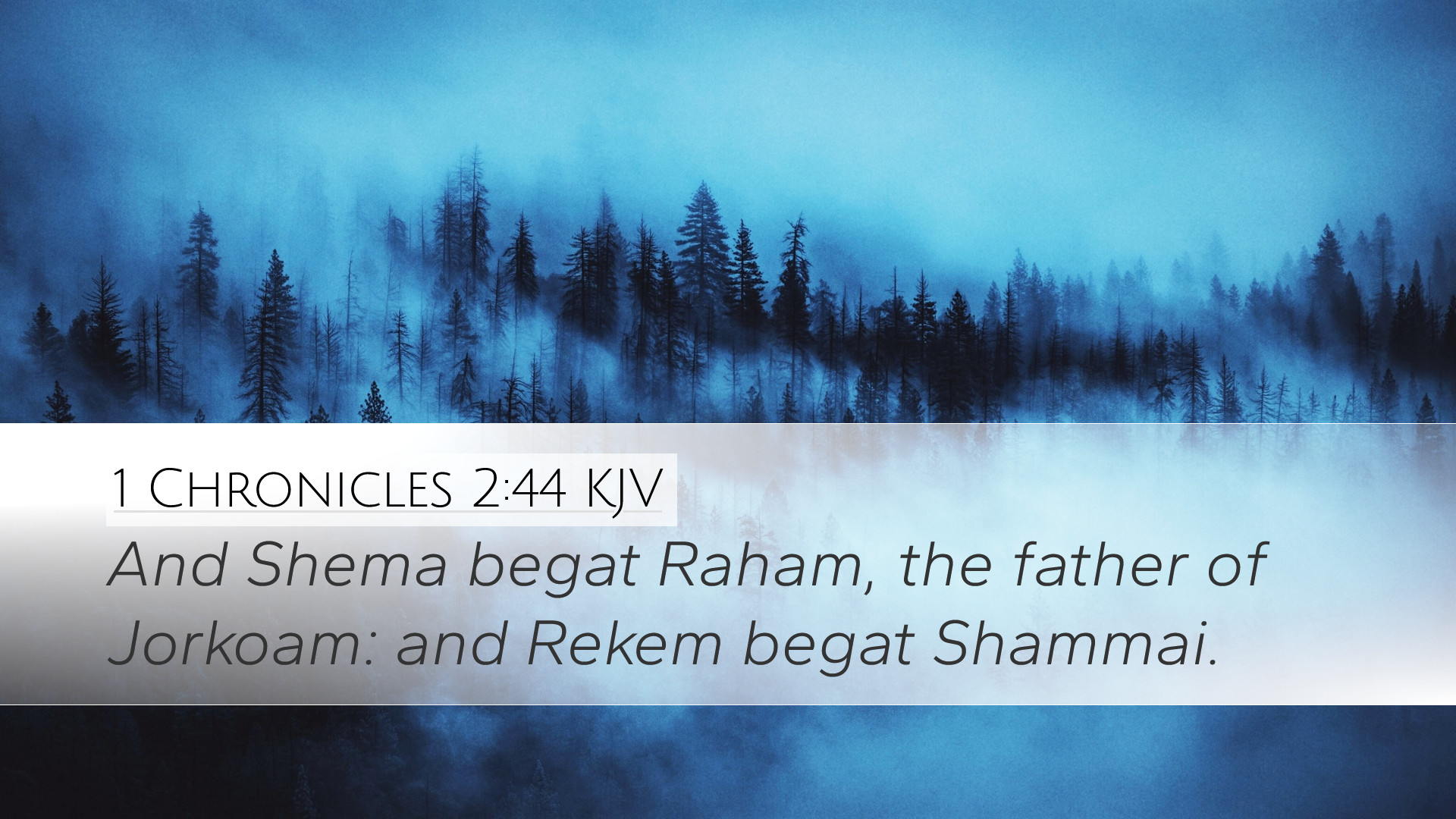Commentary on 1 Chronicles 2:44
Bible Verse: "And Sheshan had a son named Ahlai." (1 Chronicles 2:44, NIV)
Introduction
The genealogical records provided in 1 Chronicles serve an essential purpose in highlighting the lineage of the tribes of Israel, focusing on the descendants of Judah. In this particular verse, 1 Chronicles 2:44 mentions Sheshan and his son Ahlai, presenting a succinct yet significant reference that connects to broader themes of legacy and familial distinctions within the Israelite community.
The Contextual Framework
1 Chronicles is primarily concerned with the history and genealogies of the tribes of Israel following their return from Babylonian exile. The lineage accounts aim to establish a sense of identity and continuity among the people. The mention of Sheshan and Ahlai serves to anchor these genealogies and affirm the ongoing story of God's covenant people.
Insights from Public Domain Commentaries
Matthew Henry's Commentary
Emphasis on Genealogy: Henry stresses the importance of genealogies in the Bible's overarching narrative. In this verse, he notes that the recording of descendants—like those of Sheshan—illustrates God's faithfulness over generations. This serves as an encouragement to God's people to remember the legacy of faith they inherit. Henry reflects on the fact that all individuals, even those seemingly minor in biblical accounts, have a role in God's sovereign plan.
Albert Barnes' Notes
Significance of Sheshan: Barnes points out that Sheshan was a person of note in the genealogical records. He elaborates on the idea that while the details may seem trivial, they serve to affirm the preservation of family lines and the historical integrity of Israel's ancestry. Barnes further examines Sheshan's mention to highlight how the genealogies keep the memory of every household alive, emphasizing the significance of each name in the scope of God's plan.
Adam Clarke's Commentary
Historical Context: Clarke provides a background on the lineage, explaining that Ahlai's mention is more than a mere fact of birth; it reflects the persistence of Davidic lineage and the continuity of the tribes of Judah. He contemplates on the fact that every name listed is linked to God's promise to establish a lasting dynasty among His people. Clarke draws attention to the importance of familial ties in ancient cultures, noting how names carried a weight of history and identity.
Theological Implications
The Covenant and Continuity: The mention of Ahlai introduces theological reflections on God's covenant with the people of Israel and the unfolding of His redemptive plan. It serves as a reminder of the enduring promise that through David's line, the Messiah would come, thereby validating the unique identity and purpose of the nation.
Application for Today
Understanding Our Heritage: For modern readers, especially pastors and theologians, this verse calls for a deeper appreciation of one's spiritual heritage. The connections between generations illustrate the profound impact of faith passed down through family lines. It invites contemporary believers to reflect on their own spiritual lineage, recognizing how past generations contribute to their current faith.
The Value of Every Member:
The genealogies affirm that every individual holds value in the tapestry of God's story. Just as Sheshan and Ahlai are included in this lineage, so too can modern believers find their place in God's unfolding narrative, encouraging them to contribute positively and faithfully to their faith communities.
Conclusion
1 Chronicles 2:44, while brief in its presentation, is rich in meaning and significance. The insights drawn from public domain commentaries further aid in understanding the depth of God's covenantal faithfulness and the importance of every believer's heritage. As we explore these genealogies, we are reminded of the continuity of faith and the legacy we inherit as children of God.


